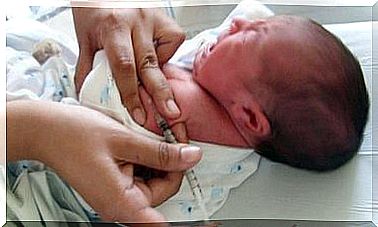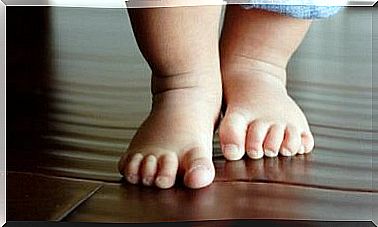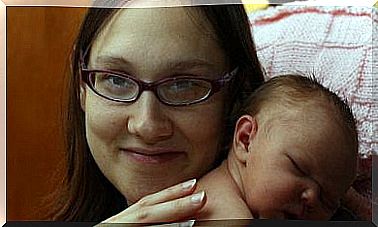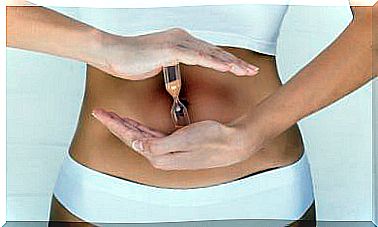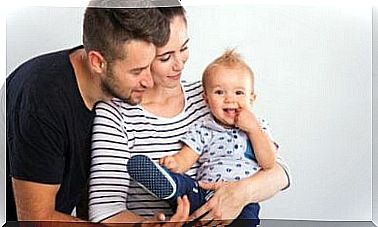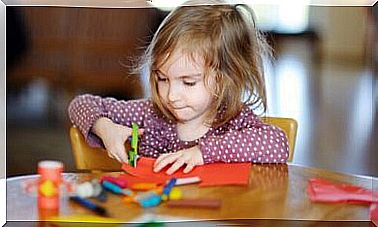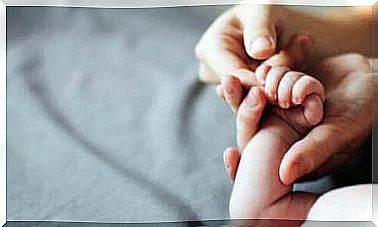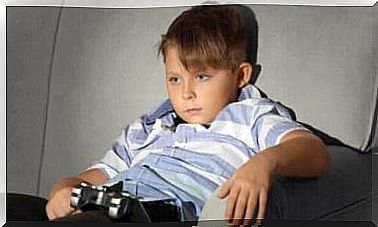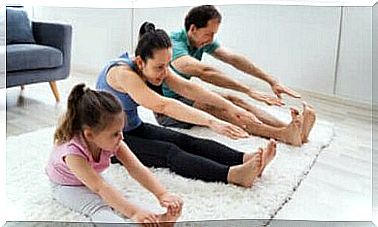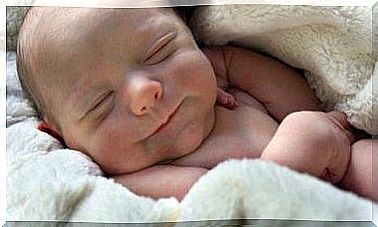Allergy To Sweat In Children
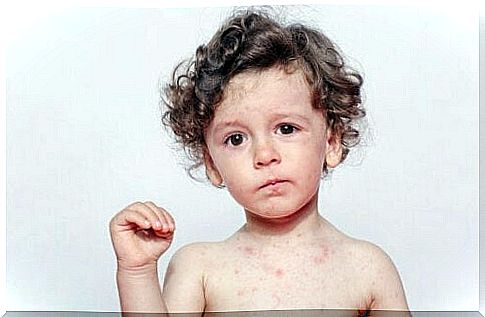
Many children suffer from allergic reactions to sweat due to many factors. In this article, we will tell you everything you need to know about allergy to sweat in children.
Sweat is the body’s response to a rise in temperature. The sweat that evaporates from the skin cools the body. However, there are some children who develop allergies to sweat.
The common causes of sweating, which can aggravate these symptoms, include sports, high temperatures and emotional stress.
As a result, sweating can cause a skin reaction that can leave spots and red marks. If this happens to your child, it is important that you go to the pediatrician. He or she will analyze the cause and tell you what medication your child needs.
Babies and children have sensitive skin, and the rise in body temperature is what causes this allergy. While it is true that they can get rashes everywhere, it is most common to get rashes on the abdomen and extremities.
The appearance of marks usually causes itching and discomfort in children. They may also experience headaches or palpitations.
Types of allergies to sweat in children
Problems such as dermatitis, hives or hand eczema are associated with allergies to sweat in children. These are the three most common:
1. Atopic dermatitis
Atopic dermatitis is characterized by redness of the face. It occurs on the forehead and on the cheeks. Furthermore, it can show up on the head, wrists, elbows, knees, ankles and neck.
In general, atopic dermatitis can occur from contact with sources of irritation, such as soap and detergents. It can also occur due to heat and sweat.
We recommend that you gently cleanse and dry the baby’s skin. It will prevent sweat or other irritating products from coming in contact with the skin.
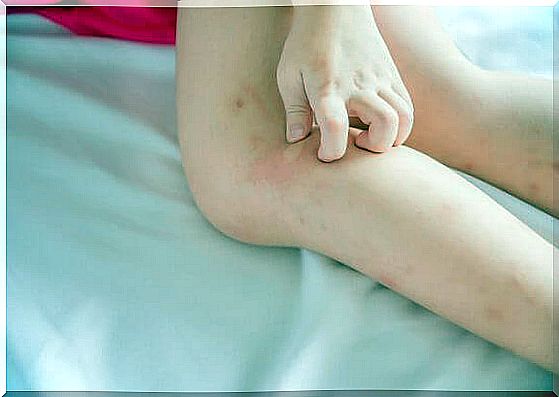
2. Urticaria
The second type of sweating allergy occurs on the skin with red spots and, sometimes, itching. The inflammation primarily affects the arms, legs and chest. However, it can occur anywhere on the baby’s body.
Hives can go away on their own within a few hours or days. However, this condition is very annoying. Therefore, consult your child’s doctor so that he or she can prescribe a medication that can reduce swelling and itching.
3. Hand eczema
Sweat and moisture are factors that can cause this disorder. It can, at times, be painful for babies. This type of allergy is known as a skin condition close to eczema. It usually affects the hands and feet.
This acute or chronic skin condition forms bullous lesions. The treatment is, as a rule, local. Apply an antiseptic and anti-inflammatory ointment to relieve the pain.
How to prevent allergies to sweat in children
In most cases, children’s reaction to sweating disappears within a few days. To help relieve the symptoms, keep in mind that moisturizer is ideal. It soothes the itchy feeling and causes the rash to go away.
As always, prevention is the best medicine. So, here is a list of some simple tips to treat allergies to sweat in children. Pay close attention to them!
- Pay attention to chemical products. Symptoms often get worse with the use of chemicals.
- When your child needs a shower, he or she should use hot or cold water. It reduces the risk of an outbreak.
- Go for cotton clothes instead of synthetic fabrics. It helps your child sweat better.
- Choose breathable clothing when your child needs to play sports. It will prevent excessive sweating.
- Avoid using sponges so that you do not harm your child.
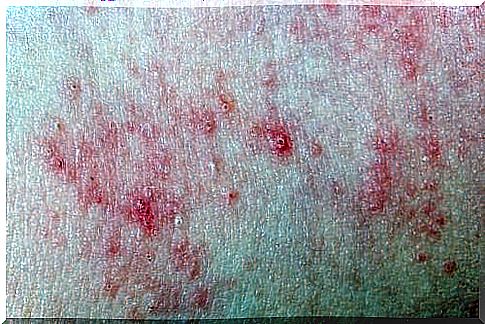
- Cut your child’s nails to avoid damaging the affected areas.
- Anti-inflammatory creams can be a perfect solution to reduce swelling.
- Do not overprotect your child. Also, be careful of temperature changes when switching from one place to another.
- Keep your baby’s skin clean and hydrated.
Consult your doctor
Furthermore, you should know that this allergy is common. It is caused by a reaction of sensitive skin to sweat.
Do not worry too much, as it is usually improved by taking the right reservations. Moreover, as your child gets older, these problems will disappear completely.
Finally, as a mother, it is important to know how to act. It is crucial to go to a dermatologist. He or she can identify the cause and tell you what types of medications you need to use.
